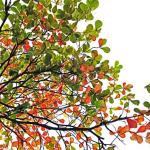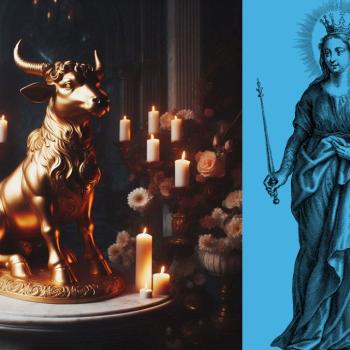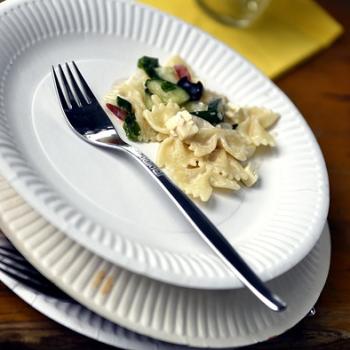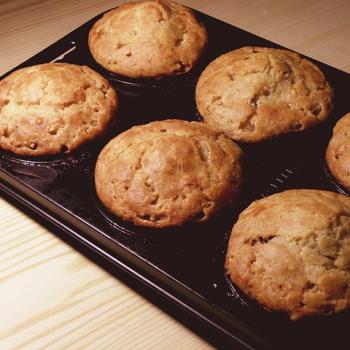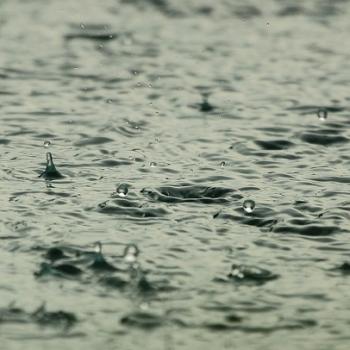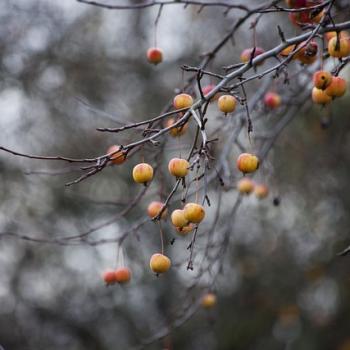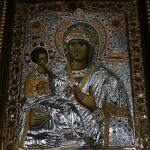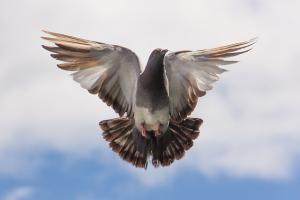
There was a shirt lodged in the chimney.
It wasn’t one of our shirts. It was a t-shirt, not Michael’s size, and it had obviously been used as a bird’s nest. We turned on the heat for the first time and found that the furnace kept shutting off for no apparent reason. The landlord called out his trusty handyman, a talkative Appalachian fellow missing a few teeth. He found the shirt, and dug it out, and sat on our living room steps exclaiming about the shirt for ten minutes. He’d never seen a shirt stuffed in a chimney in all the thirty years he’d been repairing houses. He couldn’t even imagine a bird big enough to carry it, but it must’ve been a bird. It couldn’t be the pigeons. Maybe it was the neighborhood hawk.
We reminded the handyman of the gutters that had needed cleaning since I don’t know when, and he went out to look, which is when he remembered the trees that have grown too close to the porch. Those were the trees that shielded us from the stalking neighbor who used to live in the haunted house, and I love them, but I also love having a house. He’d forgotten about the trees for a whole year. They’re eating into the porch and crushing one gutter now. They’ll have to go. Our porch will be naked on three sides instead of hidden in a messy thicket.
I was sad, but I thanked him.
On the way back to his truck, we all heard a loud, desperate fluttering sound. There was a fat pigeon winched between one of the trees and the side of the house, at just such a tricky angle that he couldn’t get out.
“I hate pigeons!” said the handyman, reaching up coldly to grab the struggling creature. “They’re filthy birds. Only thing worse is geese. Do you hate pigeons?”
I’m not too fond of them, but I was afraid he was going to kill the bird, so I said “no.” The handyman saw my horrified look and threw the pigeon, alive, onto the lawn, where it fluttered away.
Later that evening, Jimmy’s boy and the Artful Dodger came along to see how the garden was dying off.
“Guess what they found in my chimney?” I said as I brought them around the side. “A shirt! It wasn’t Adrienne’s father’s shirt, it was a shirt for a very large man.”
“Was it Santa’s?” asked the Artful Dodger.
We laughed as we scurried around the house.
The sunflowers are all but gone now– there’s one that still has buds, so I’m keeping it alive to see what will happen. The goldfinch and the robins have flown south, and I haven’t seen the cardinals in days. The tomatoes are nearly dried up. I don’t know if I’ll see a bean before frost. There was a gray and white cat playing in what had once been the summer squash– this was the Artful Dodger’s cat. Jimmy’s boy said that her name was “Disaster Cat Astroy Astroy,” but the Artful Dodger called her “Sparkles.”
Adrienne came out, pretending to look at the phone in that tiresome adolescent way, but clearly hoping for some excitement. I told the story of the shirt in the chimney again; I also told the boys about the pigeon stuck between the tree and the house, and the handyman tossing him onto the lawn. I explained how the trees weren’t long for this world, and would be gone the next time the handyman was in town with his chainsaw. I think we were all sad.
“I’ll have to think of something to plant there,” I said. “One side of the house is shady but the front will be sunny. I have wildflower seeds that will reseed year after year.”
“Bushes!” said Adrienne. “I want bushes around the porch.”
“What about something we can grow to eat? How about blackberry bushes?”
Oh, the were excited about blackberry bushes. I pointed out where we might grow wildflowers to court the pollinators and where we could have blackberries for the summer, where we’d put a climbing rose or grapes on a trellis or both. We’d have a whole world of beautiful-smelling and tasting things to take the place of those scrubby trees, places for the birds to nest, plenty of shade to hide the porch. An Eden right here in Steubenville. A paradise.
Jimmy’s boy, who had been yanking some dead grass from the middle of the tomato cages, cried out in surprise. We all gathered round in the dying light to see what he’d found.
There had been a big avocado seed in the compost I spread over the tomato patch before I put the plants in this year. It was too big to decay when the rest of the kitchen scraps did. Over the summer, it sprouted. There was a slender stem coming out of it, topped with a propeller of oblong green leaves.
“It’s an avocado tree!”
In vain did I explain to the excited boys that an avocado tree was not going to survive the frost. They squealed with excitement at the thought of a tropical tree in my tiny garden utopia. I promised to try to save it. I’d grab a bag of potting soil and a planter this week when we finally replaced the car. I’d try my best to transplant the avocado and see if I got an indoor plant out of it.
Adrienne and the boys ran footraces and played and wrestled until well after dark.
All around me was fresh cool air and the honey smell of Autumn.
The whole world is dying, and the whole world is returning to life.
And life is good.
Mary Pezzulo is the author of Meditations on the Way of the Cross, The Sorrows and Joys of Mary, and Stumbling into Grace: How We Meet God in Tiny Works of Mercy.



